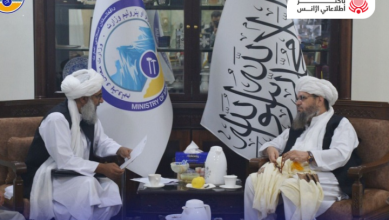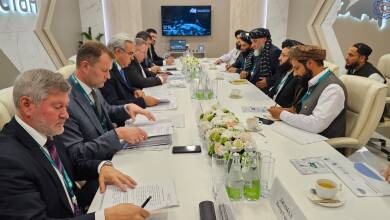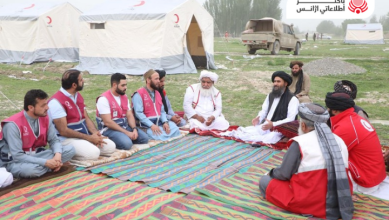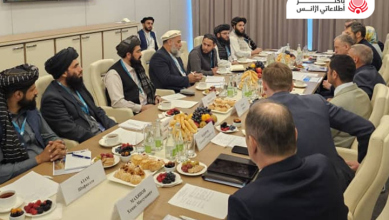
Tuesday March 31, 2015
Kabul (BNA) Looking beyond the security troubles plaguing the country, President Ashraf Ghani outlined plans on his trip to US to build a strategic railroad stretching from Central Asia to China that would allow Afghanistan to develop its untapped mineral resources.
In a speech at the Council on Foreign Relations, a New York think tank, President Ghani focused on economic development, after securing a commitment from President Barack Obama to keep more U.S. troops in Afghanistan. “In 25 years, Asia is going to become the largest continental economy. What happened in the United States in 1869, when the continental railroad integrated, is very likely to happen in Asia in the next 25 years,” said President Ghani. “Without Afghanistan, Central Asia, South Central Asia, East Asia and West Asia will not be connected.” He added, “Our goal is to become a transit country.” In as little as three years from now, the railroad could allow goods to reach Europe in five days, via the Caspian Sea, he said. With Afghanistan’s planned 2,237-mile, multibillion-dollar railway, the country has the potential to supply transport, power transmission, gas pipelines and fiber optics, which would create “massive jobs and opportunity,” said president Ghani. Only one city in Afghanistan is currently linked by rail to another country, Uzbekistan. The aim, president said, is to eventually become linked to China.
A railroad would also allow Afghanistan to transport its wealth of mineral deposits, including lithium, copper and gas and oil reserves, which the Pentagon estimated was worth roughly $1 trillion in 2010. In 2011, Afghanistan tripled that estimate. However, President Ghani said Afghanistan has a “curse of natural resources” and noted there are no institutions in place to credibly manage them. In 10 years, Afghanistan could be the largest producer of copper and iron in the world, said the president. “Gas is looking very good, and oil is beginning to look good.” “The bulk of what we’re going to produce in the next 10 years is very heavy. Without rail, there are no possibilities of creating economies of scale,” said president Ghani. The World Bank, the Asian Development Bank and Pakistan are among the railway’s funders, and about 90 percent of the funding is secure, said the president. After meeting with president Ghani on last Tuesday, Obama announced the U.S. will not be halving the 9,800 troops still in Afghanistan, backpedaling on previous plans to reduce the troop level. Keeping U.S. troops in country will allow them to train Afghan forces and let U.S. intelligence and the CIA operate in the country’s south and east. “The specific trajectory of the 2016 U.S. troop withdrawal will be established later in 2015 to enable the U.S. troop consolidation to a Kabul-based embassy presence by the end of 2016,” the White House said in a statement Tuesday.




